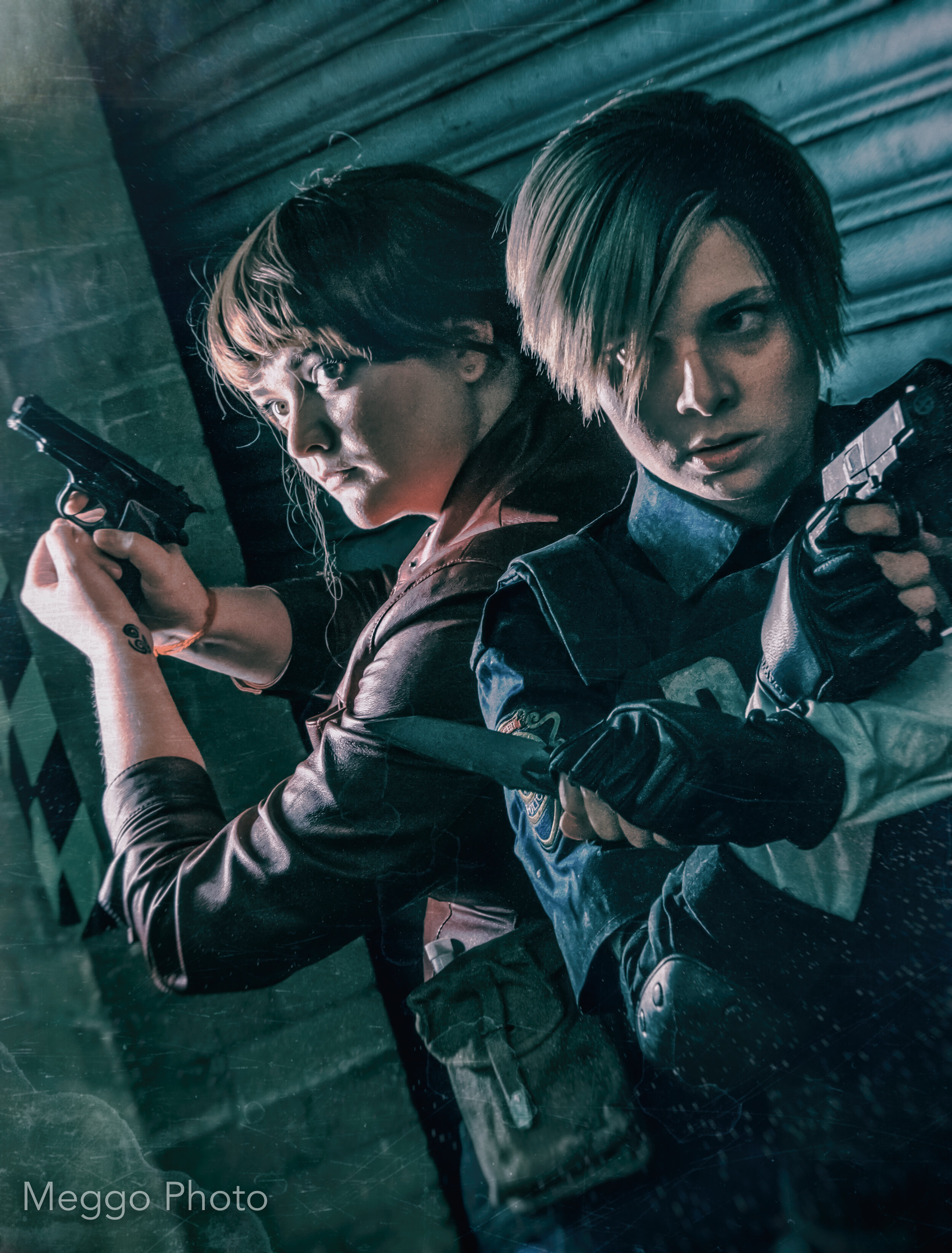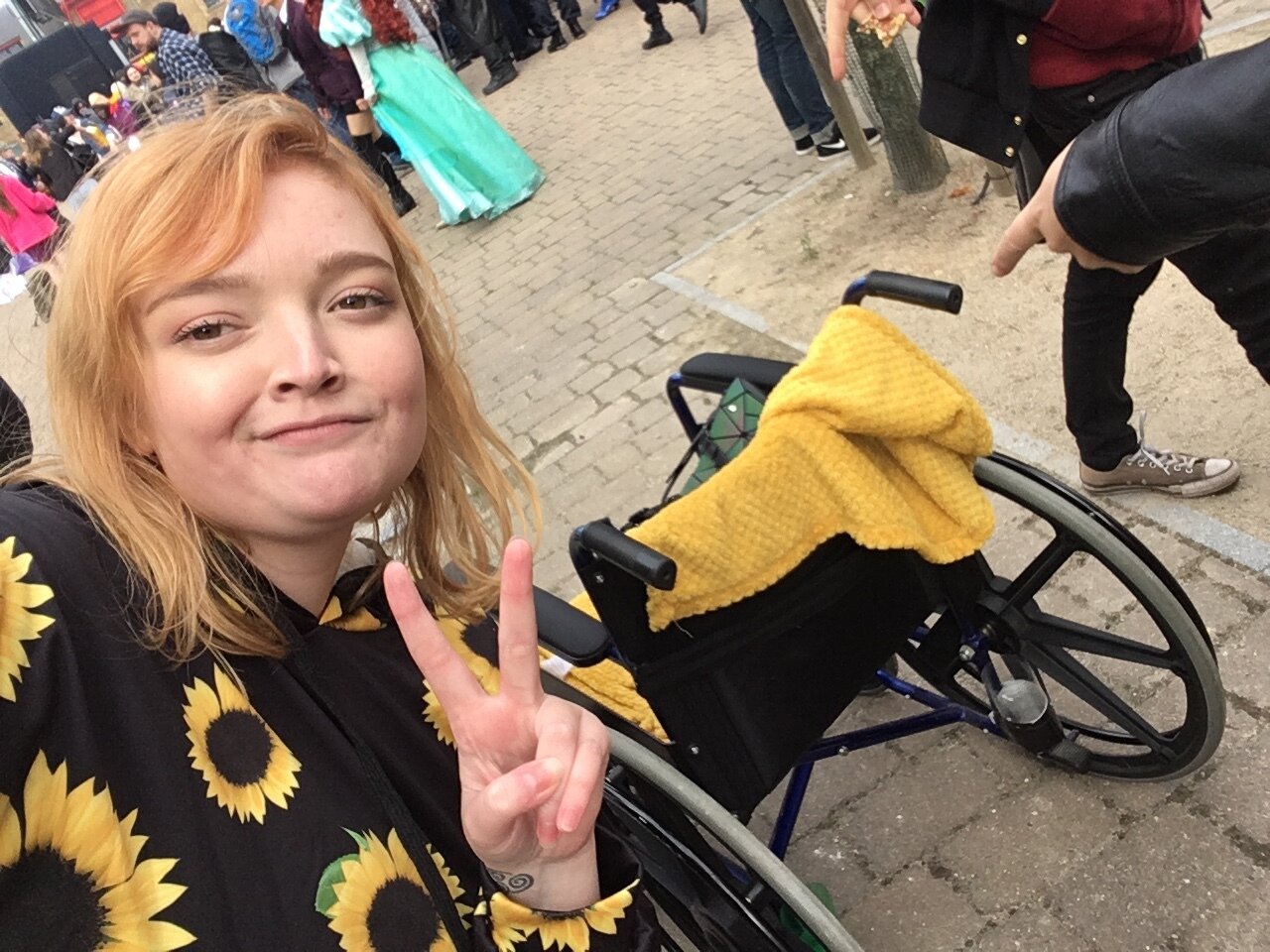The Access Review: Glamourising Illnesses and the Fashion Industry
Daisy Brookes/Ekko Cosplay
Recently I was scrolling my Instagram feed when I saw something that got my blood boiling. It was a clip of a runway collection from 2019's Paris Fashion Week by a designer I’d never heard of called Maison Kimhekim. Now this video didn’t have models in gorgeous couture gowns or outlandish fashion statements, no, these models were walking the runway carrying selfie sticks and IV drips. The collection, called ME (ATTENTION SEEK), seems to mock and belittle the every day struggles of disabled folk, and I am absolutely disgusted by it.
Over the days following this video, I went on a bit of a tirade across my social media’s. I was angry that something like this was allowed to happen at arguably the biggest fashion event in the world. That once again the reality of sick and disabled peoples lives was being twisted and used for gross capitalist gain. I wanted to scream at the world that my life is not a joke, that when I sit through my transfusions every 3 weeks I can barely move for feeling rundown and sick, let alone walk a runway. I was, to save rambling on about it too much, absolutely livid.
How does this relate to cosplay, you might be thinking, how does this fit with The Access Review? And honestly? Well the Fashion Industry is all about art and creativity as is the Cosplay Community. Different branches from the same tree, and as I thought about what designers seem to be getting away with I found myself wondering how this translated and differed in cosplay.
Unlike the way Maison Kimhekim used the IV drips in a degrading way, when abled (and disabled) people cosplay characters who use certain disability aids it is usually done with admiration and respect. A Daredevil cosplayer doesn’t take advantage of the cain and glasses they wear, they don’t disrespect that people in the real world use and need those things. Whilst I fully agree illnesses and disabilities aren’t a costume and nor should they be portrayed like that, when done appropriately and with the right care and respect I personally see no problem with cosplaying disabled characters, in fact I like seeing these characters, so often left at the side, brought to life.
Back in 2014, around when I first started cosplaying I did a make up test for a character called Emma Decody from the show Bates Motel. I remember getting a bit of flack for this as in the show Emma has and carries an oxygen tank with her. I was told that because I no longer used or needed oxygen on the daily that I was being disrespectful and ableist for including it in my cosplay of her.
Emma Decody and my cosplay of her
I was shocked, I’d seen so much of myself in Emma and felt so represented when she was on screen. I was hurt and confused, how was I in the wrong? Now I understand the confusion and frustration, and whilst I still believe the flack was uncalled for, I get that because I didn’t use an oxygen tank, it came across as glamourising those who do.
My Freddie Cosplay From Shazam photographed by Ant Clark
Recently I cosplayed Freddy Freeman from the new Shazam movie, another disabled character who in his non superhero form uses a crutch to walk. In the last few years I have relied more and more on my crutches and seeing this character on screen was again, a very big deal to me. I knew immediately that I would be cosplaying it, and have found the reaction to be very different to that of my Emma test. Far more widely accepted, people have even said they were proud of me for letting go of my fear of my crutches and embracing them in my cosplay life. The difference in the two things made me realise that everyone is capable of that understanding, that we are able to accept and respect how disabilities have a place in cosplay.
I want to keep this a shorter piece as I have a lot to say on this matter that I will go in to deeper another time. So what I want to finish with is a little reminder: being disabled is not a costume. For those of us who are sick and suffering, we don’t get to finish the day, take the cosplay off and put the props away. I keep my crutches with me every day, I have friends who carry their oxygen with them 24/7, the weight of these things never leaves us, physically or mentally. It takes nothing to be respectful and understanding of these things, it takes nothing to listen to the disabled people in your lives when they tell you that this is an ongoing problem.













